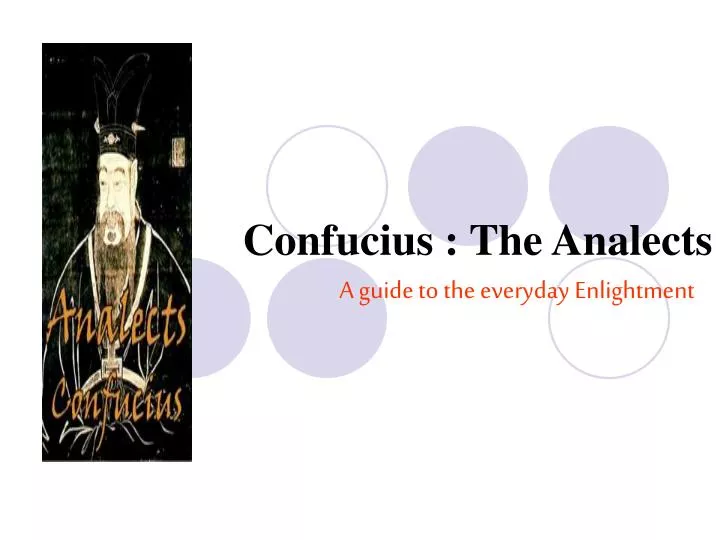
Confucius believed that the best way to love others was to maintain humility and to avoid being clever or trying to gain favor with others.

This concept, which he called ren, meaning "loving others" or "compassion," remains central to Confucian belief. The core of his belief was that while people live their lives subject to the rules and commandments both of heaven and of the cycle of natural forces, they are also responsible for their own behavior, particularly their treatment of others. In these dialogues, he presented his thoughts not as new but as wisdom that had been handed down over the course of hundreds of years. In Books 1 and 2, the "Master" is Confucius, and other names refer to students who ask him questions.

The Analects record Confucius's teachings as dialogues, or conversations, with students. When he has time and opportunity, after the performance of these things, he should employ them in polite studies'." He should overflow in love to all, and cultivate the friendship of the good. "The Master said, 'A youth, when at home, should be filial, and, abroad, respectful to his elders.

In the centuries following his death, Confucius came to be regarded as an almost mythic figure, a "sage-king" whose name remains readily identifiable with practical wisdom, or wisdom that can be applied to life. This slim, twenty-chapter book is thought to have been written by Confucius (551–479 bce), a philosopher, educator, politician, and public servant.

It has been said that all later Chinese philosophy (thought or study on the arts and sciences) is in some way rooted in the Analects. An analect is any collection of assorted writings. The Lun Yu, also known as the Analects, is one of the most influential books that survives from the ancient Chinese world. Books 1 and 2 of the The Analects of Confucius, available online from Exploring Ancient World Cultures Anthology at


 0 kommentar(er)
0 kommentar(er)
